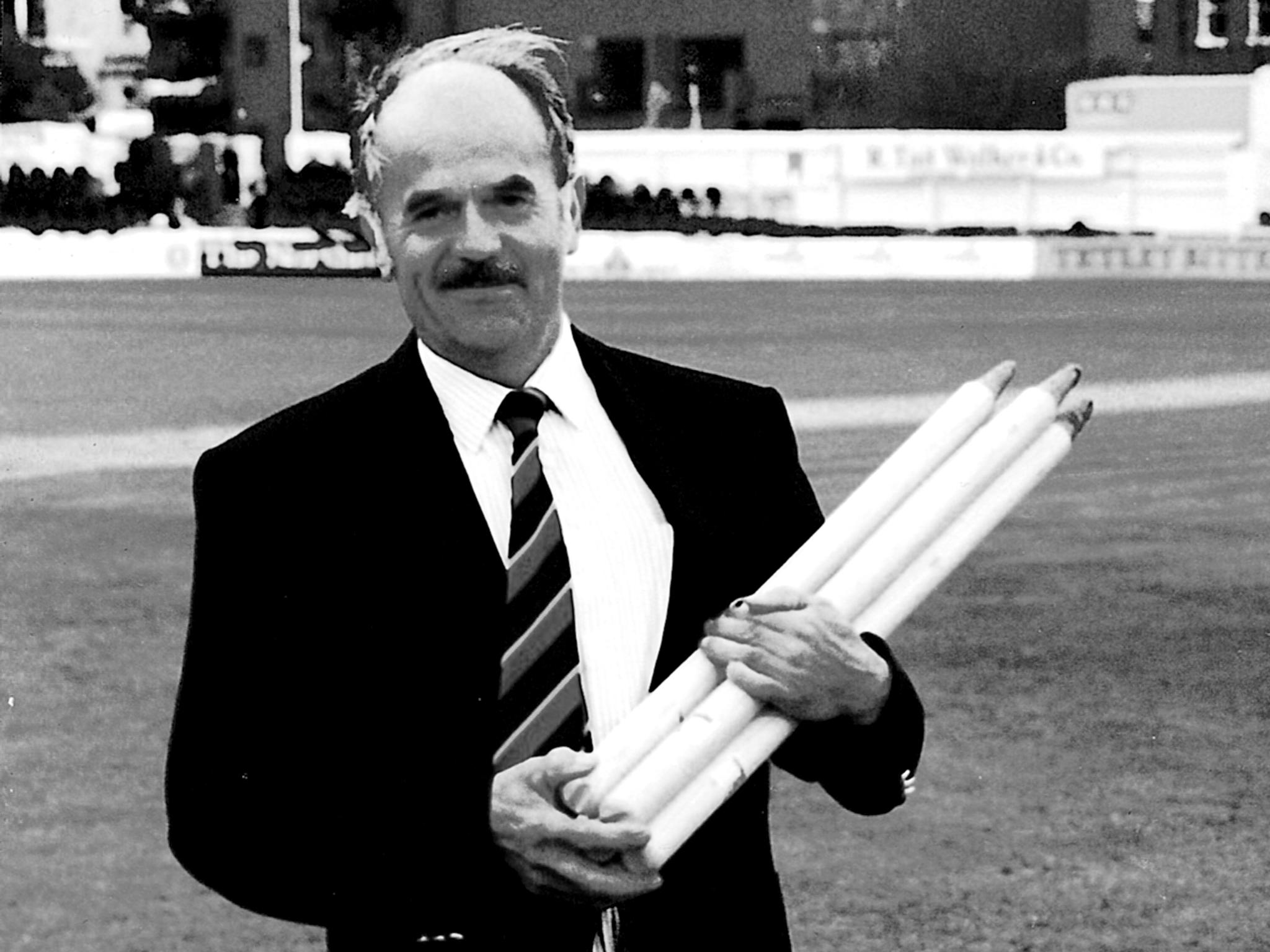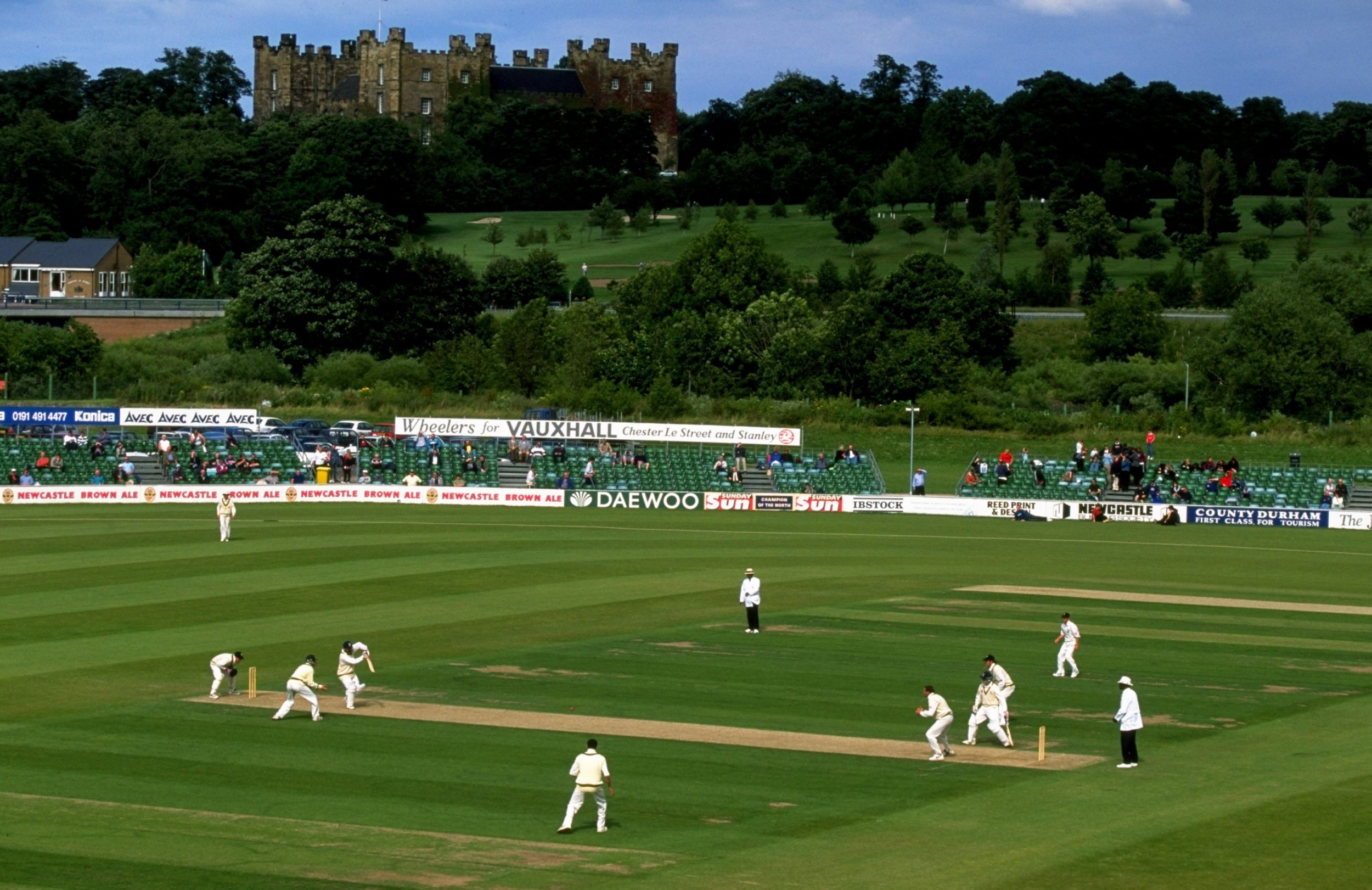Tom Flintoft: Groundsman who helped turn Durham’s dream of first class cricket into a reality
He was remarkably adept at responding to the vagaries of the weather in the northeast and unfailingly marshalled his team

Your support helps us to tell the story
This election is still a dead heat, according to most polls. In a fight with such wafer-thin margins, we need reporters on the ground talking to the people Trump and Harris are courting. Your support allows us to keep sending journalists to the story.
The Independent is trusted by 27 million Americans from across the entire political spectrum every month. Unlike many other quality news outlets, we choose not to lock you out of our reporting and analysis with paywalls. But quality journalism must still be paid for.
Help us keep bring these critical stories to light. Your support makes all the difference.
Once described by cricket umpire Dickie Bird as “the best groundsman in England”, Tom Flintoft, who has died aged 86, was a straight-talking Yorkshireman who produced perhaps the most fundamental component in Durham’s emergence as a first class cricketing county – an excellent playing surface.
Initially starting out with a long-neglected piece of scrubland on the edge of the River Wear in the early 1990s, this latter day Thomas Lord undertook the challenging task of creating a playing arena fit for both first class as well as Test match cricket.
One of 10 children, Thomas Flintoft was born in the tiny hamlet of Fryup on the North York Moors. He was educated at the local village school and then began work on the family farm. National service took him to Hong Kong, where he served as an army driver, and he came home on the last boat to pass through the Suez Canal before it was closed.
While working as a herdsman at Nunthorpe in 1972 and needing some extra income, he began tending the village cricket ground. Though never a player himself, he soon discovered that he had a flair for pitch management. He went on to study at night school and in 1979, when Keith Boyce moved to Headingley, Flintoft succeeded him as the full-time groundsman at Acklam Park in Middlesbrough.
It was one of Yorkshire’s regular first class out grounds and the quality of the wickets Flintoft prepared there earnt him increasing praise from within the game. So much so that when a vacancy arose in March 1986 at Hampshire’s County Ground in Southampton, particular support from Dickie Bird helped him get the job.
He lived next to the nets at the somewhat quaint Northlands Road Ground, where both the wicket and outfield had deteriorated so badly that confident play was hazardous and safe play quite uncertain. It took Flintoft three years before the likes of the Smith brothers were enjoying making strokes again. He also made sure that they had the very best practice facilities. In 1990 he won the ultimate accolade, Groundsman of the Year.
Meanwhile back in the northeast, a group of local businessmen, sportsmen and politicians, led by council leader Don Robson, was concerned that the area’s best cricketers were finding sporting success further afield and had concluded that Durham had outgrown Minor Counties cricket. Between 1976 and 1982 the county had recorded 65 games unbeaten and were the first minor county to defeat a first class county in the Gillette Cup.
In little more than 21 months, the group had skilfully tiptoed through a maze of planning regulations to acquire a desolate 150-acre site just off the A1 in the shadow of Lumley Castle. Astutely avoiding a public inquiry, with a future ground in place and £1m in the bank, Durham duly joined the elite as the 18th first class county in 1992.

Unable to resist the lure of undertaking such a project, Flintoft began work on the Riverside site in March 1992. Allowed to follow his own blueprint, he was able to locate a local source for the soil he wanted. He found it in the grounds of Wynyard Hall, the home of Sir John Hall (chair of Newcastle United Football Club at the time), and 1,000 tons of the clay-based loam were transported to help create the new ground.
For Flintoft it had to have just enough clay content to allow it to bind together but still give adequate drainage. The soil was complemented with a state of the art computerised sprinkler system, drains which recycled rain water and a square wide enough to cut 24 pitches. All this was done and dusted in just 18 months. On 18 May 1995, Durham’s Simon Brown sent down the first delivery to Warwickshire opener Andy Moles – and the club came of age with one of the great success stories of modern sport.
Flintoft himself soon proved remarkably adept at responding to the vagaries of the Durham weather, unfailingly marshalling his team. Many a young professional would have reason to be grateful for his help and support. As a man of experience he was never happier than in the time he spent chewing over ideas with cricketers and officials he had come to know and respect. For him, this sharing of experiences was what the job was all about. Likewise, his approach also won him the high regard of the Durham membership.

Eight years later and not without some initial settlement problems, having staged one day internationals, the Riverside hosted its first test match against Zimbabwe. Flintoft was an honoured guest. He had retired in 1998, and in an unprecedented move for a non-player, the county granted him a successful testimonial year.
Moving first to Stokesley and then to Whitby, he kept his hand in by keeping the greens immaculate at his local bowls club. Further afield his expertise and input remained very much in demand, his talents helping everyone from the North Yorkshire and South Durham Cricket League to the English game’s top brass.
His first wife, Mary, died in 2008. He is survived by his second wife, Kath, and four sons from his first marriage.
Tom Flintoft, groundsman, born 2 January 1934, died 30 June 2020
Subscribe to Independent Premium to bookmark this article
Want to bookmark your favourite articles and stories to read or reference later? Start your Independent Premium subscription today.
Join our commenting forum
Join thought-provoking conversations, follow other Independent readers and see their replies
Comments